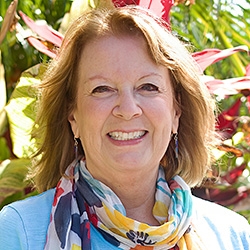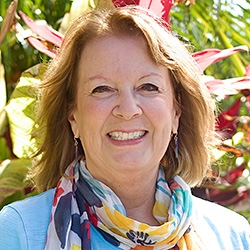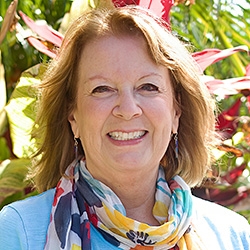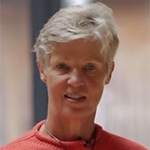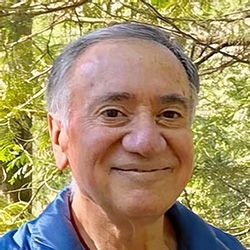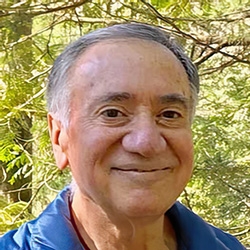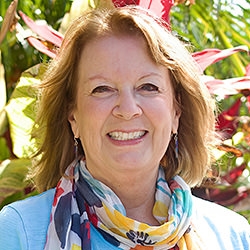

Search Results: care
-
Trainer tip: Empathy can offer profound learning opportunities to children, expand their feelings and needs vocabulary, and teach them the positive results of valuing everyone’s needs. Read on for a story that illustrates this.
-
Trainer Tip: We have a better chance of getting our needs met if we prioritize connecting with one another's needs more than being right. This way we can reduce the chances of conflict arising. We also increase the possibility we can find ways everyone’s needs can be met.
-
Trainer Tip: When we acknowledge our met needs, rather than labeling the other person as good or bad, we achieve a clarity of mind that deepens our connection to ourselves and other people.
-
-
-
Gitta Zimmerman’s 2016 workshop for street workers focused on mediation and entrepreneurship.
-
Judgment is an attempt to protect from hopelessness or insecurity, at high cost. Instead, check in with fear, grief, or hurt. Then wonder what needs are at stake for everyone. This makes space for grief instead of anger, for negotiation rather than control, and for "calling in" rather than excluding. Wonder: “For whom would this be life-serving or not?”, “What strategies would care for all needs?” or, “What can I contribute now?”
-
Explore compassionate ways to handle volatile counseling situations in dialogue form.
-
“Nonviolence” is not just a political tactic. It is a “soul force,” a courageous and compassionate stand in the face of what seems to us unjustly unequal, oppressive, and violent. It is the force of love meeting and transforming what appears to not be love.. It is the force of love meeting and transforming what appears to not be love. It is speaking and listening with courage, compassion, and an open heart and mind and rooted in our truth in a way that bridges understanding. And doing so without demand nor trying to convince -- all in the face of any anger, fear, oppression, inequality, violence or disagreement.
-
We can shift from being absorbed and identified with our inner chatter and feelings to being the space of awareness of these things. Observe your breath. Then observe your mind generating thoughts. Next, feel sensations of your body, particularly the difficult ones. Now, connect with the underlying energy of needs. Ask your unconscious mind for universal needs words related to what you now notice, think and feel.
-
- Discover the healing magic that comes from welcoming pain rather than avoiding it
- Learn how to navigate ‘healing dialogues’ when hurt or pain is present
- Increase your empathy/honesty skills and your ability to navigate painful conversations
- Embrace pain as a precious life-guiding force that teaches us how to be together!
-
Every one of us is impacted many times each day by micro-freezes that are the resulting fallout from both recent and long ago painful events. During this powerfully healing course, Sarah will walk you through a unforgettable tour of neuroscience, and succinctly demonstrate how NVC and neuroscience together can change your brain and enable your life to become both more fluid and far more resilient.
-
In this 6-session course Sarah Peyton will take you through the 5 levels of unconscious contracts that can create patterns of self-sabotage and self-defeat. Each session introduces a different unconscious contract based on various aspects of relational neuroscience and provides support for the release of these contracts.
Sarah Peyton shows you how, with deep empathy, self-accompaniment, and an understanding of neuroscience, you can free yourself from your original constraints.
It can be bewildering to be human.
We can make so many choices that are not good for us. Why do we persist in habits, incapacities or self-judgments that are harmful to our long-term well-being?
The answer to this question is surprising – it is usually either love – or - paradoxically, survival!
Love is at the root of self-sabotage.
Though we often aren't aware of it, our nervous systems are essentially still paired with our earliest caregivers and often related to how we responded as a child. Our first interactions shape us in ways that can limit our life energy.
-
By guessing our child's feelings and needs we open the door to understanding what's behind their behavior, and can better suggest solutions that meet both their and our own needs. In this way we build trust and their desire to seek us out in times of need. Expressing our own feelings and needs also allows us to help them understand the value in fulfilling tasks or requests.
-
By guessing our child's feelings and needs we open the door to understanding what's behind their behavior, and can better suggest solutions that meet both their and our own needs. In this way we build trust and their desire to seek us out in times of need. Expressing our own feelings and needs also allows us to help them understand the value in fulfilling tasks or requests.
-
Miki Kashtan reveals how choice is always available, no matter the situation or circumstances.
-
Marshall Rosenberg suggests that there are two requests that are the most transformative to relationships, (1) What’s alive in both of us? and (2) What would make life more wonderful for both of us? This telecourse recording offers an easy-to-digest overview of how carefully crafted requests inspire joyful relationships.
-
Miki explains the distinction between the language and the underlying consciousness of NVC, and the pitfalls of failing to do so.
-
How do we live each and every day from the “living energy of needs” – with the unimpeded fullness of life’s energies flowing through us, regardless of the conflicts or life circumstances we may be experiencing? Through developing deep self-compassion. How can we experience our inner world from a place of utter and total compassion? When we practice compassionate self-care, we create an inner spaciousness that allows our life’s energies to flow. In that spaciousness both healing and inner transformation occurs. Robert’s work explores the interweaving of two co-intentions—to live life from the fullness of the “beauty of needs” and to approach every experience with deep compassion.
-
It is the first day of December and it seems to me as if 2023 went by with a flash. I have felt deep despair about the growing division between people and the devastating impact it has had on human beings, all life in fact, including our planet. And, I have also experienced many moments of joy and satisfaction this year.

Quick Links
Subscription Preferences
Stay In Touch!
Looking for ways to keep up with NVC Academy news, get special offers, free resources, or words of inspiration? Here are five ways to stay engaged:

